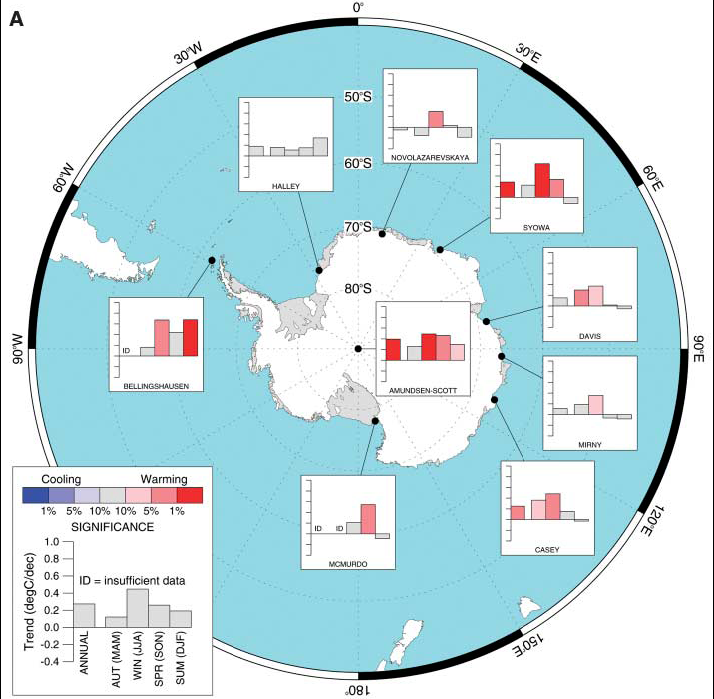The Washington Post has published a second op-ed in as many days about global warming (“Spinning Global Warming”, By Robert D. Novak, Page A19, April 03, 2006–story is no longer available on the website, but the Chicago Sun Times version is available here). In this one, Novak claims that Hansen in 1988 over-predicted global warming by 400% (a story originated by Pat Michaels and subsequently propagated by Michael Crichton). This story is a fabrication that has already been set right by us in 2004.
Smearing Hansen, a leading climate scientist and member of the National Academy of Sciences, appears to have become sport among contrarian commentators (see our earlier discussions here and here). As ad hominem attacks and “shoot the messenger” strategies are often the last refuge for those losing the substantive debate, this might be viewed by some as a positive sign, indicative of just how intellectually bankrupt the contrarian movement has become.
[Read more…] about Heat Rising at the Washington Post
